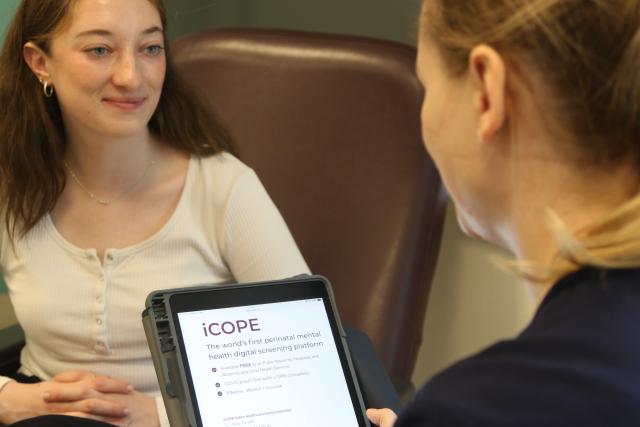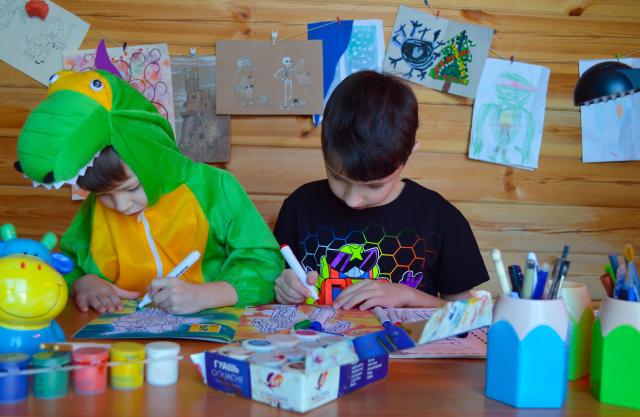A world-first online screening program in Melbourne’s north has contributed to a nation-wide expansion of the new service to detect early signs of perinatal depression and anxiety in mothers.
The Centre of Perinatal Excellence (COPE) developed the iCOPE tool to identify mums at risk and facilitate faster and more effective mental health screening in the perinatal period, the time during pregnancy and the year following birth.
Northern Health has partnered with COPE to trial the app and conducted a total of nearly 3,000 iCOPE online mental health screenings with new and expectant mums during early clinical trials between April 2019 and March 2020.
COPE founder and perinatal mental health specialist Dr Nicole Highet said the program was imperative for early detection, given the affects the pandemic has had on people the past two years.
“The COVID-19 pandemic has further increased the incidence and severity of perinatal depression and anxiety, with a huge increase in calls to helplines and support services. At the same time, many people have become more reluctant to attend medical appointments in person due to COVID concerns,” Dr Highet said.
“One in ten women experience depression during pregnancy, increasing to one six in the year after their baby is born. One in five mums suffer perinatal anxiety. With suicide being one of the leading causes of maternal death in Australia, screening during pregnancy and the year after birth is critical. The iCOPE digital health check speeds up and facilitates this process.”
Typically, a mental health assessment is conducted by pen and paper by the health professional, but Dr Highet said this new digital service made the process easier and more efficient for all involved.
“It enables the woman to answer the questions on her mobile phone prior to the appointment, and really importantly, the woman can receive a personal copy of her results. And also the health professional receives a clinical report outlining what the scores mean and what to do next,” she said.
There were also a number of other contributing factors for the development of the service.
“We also know in that time-pressured environment that there was often miscalculation when adding up the scores, some research has shown up to 29 per cent error rate in adding up some of the scales in that environment,” Dr Highet said.
“So of course iCOPE because it’s all digital and electronically calculated, ensures 100 per cent accuracy.
“The other major issue was the lack of data collection. After the government invested initially $85 million in a national screening program, at the end of that there was no data because it was all on pieces of paper in the filing cabinets of the health professionals drawers.”
iCOPE is currently available in 12 (soon to be 32) languages including English, Arabic, Cantonese, Chin Hakka, Dari, Dinka, Mandarin, Persian/Farsi, Punjabi, Tamil, Turkish and Vietnamese, with another 20 languages in development.
“Another great advantage for doing it digitally is that we have it available in multiple different languages. So this is very important for a population group like the northern area where there’s wide levels of multiculturalism.”
The health service has just started delivering the iCOPE service through the Northern Hospital Epping, Broadmeadows Hospital, Craigieburn Centre and the Northern Health home visiting service.
The tool is now available to every maternity hospital, GP and obstetrician in Australia.
Details: www.icope.org.au.







